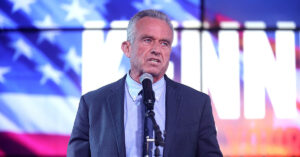Foreign Investment in US Farmland: Ownership Trends and Controversies
The Facts -
- Foreign investors own almost 46 million acres of U.S. farmland in 2023.
- 35 states proposed legislation to limit foreign farmland ownership in 2023.
- Canada is the largest foreign owner of U.S. farmland, holding 15.3 million acres.
Foreign Ownership of U.S. Farmland: An Overview of Current Trends and Debates
The ownership of American farmland by foreign investors has become a significant topic of discussion, with nearly 46 million acres held by international entities, according to the 1978 Agricultural Foreign Investment Disclosure Act (AFIDA). The estimated valuation of this land reached $82.6 billion in 2023, as reported by The Daily Yonder.
It is essential to understand that the AFIDA data may not reflect the precise current market value of the land. Discrepancies can arise due to recording errors by USDA personnel or because valuations are based on the original purchase price, which could differ significantly from the present value if the land was bought years ago. The AFIDA data encompasses both leased and owned land under the term "ownership."
In response to growing foreign investments, 35 states initiated legislation in 2023 to curb foreign acquisitions of American agricultural land. This legislation primarily targets countries perceived as adversarial, including China and Iran. Analysis of AFIDA data indicates that Chinese entities currently control 277,000 acres of U.S. farmland.
Highlighting specific instances, a Chinese billionaire, Sun Guangxin, owns 7% of land in Val Verde County, Texas, with his subsidiaries controlling nearly 30,000 acres. In 2021, Texas Governor Greg Abbott enacted the Lone Star Infrastructure Protection Act, which restricts entities from "hostile nations" from accessing the state's power grids and critical infrastructure.
U.S. Agriculture Secretary Brooke Rollins has voiced intentions to further restrict Chinese ownership of American farmland. Although she cites national security concerns in an interview with Breitbart News, her statements have drawn criticism for potentially fueling anti-Asian sentiment. The Committee of 100, a Chinese-American advocacy group, argues that such remarks "legitimize harmful and xenophobic claims" and could exacerbate violence against Asian communities.
The debate over foreign ownership of American farmland raises questions about whether these transactions signify a threat or the natural result of global capitalism. Madeleine Fairbairn, in her 2020 book "Fields of Gold", describes these investments as "land grabs," noting a surge in interest around 2008 as investors sought stable assets amid market volatility. Farmland's steady appreciation and inflation resistance make it an appealing investment, though investors generally view it as a financial asset rather than a farming opportunity.
Canada stands as the largest foreign stakeholder in American farmland, with ownership of over 15.3 million acres valued at $17 billion. The John Hancock Life Insurance Company, a Canadian entity, holds over 745,000 acres in states like Washington, Oregon, and Maine. In Maine, approximately 20% of private farmland is investor-owned, as per USDA data analyzed by the Maine Morning Star.
Energy interests also play a role, with foreign energy companies owning about 4.8 million acres of farmland. Invenergy Wind Development, focused on renewable energy, controls 2.3 million acres, primarily in Colorado, where their holdings are valued at around $2.1 million.
Behind Canada, the Netherlands is the second-largest foreign proprietor of U.S. farmland. The Red Mountain Timber Company, a Dutch firm, owns 1.7 million acres in the American South, including significant tracts in Louisiana.
The Canadian-owned Katahdin Forest Management, LLC, presides over the largest tract of foreign-owned land in the U.S. with 171,400 acres in Piscataquis County, Maine.
For more insights, visit The Daily Yonder, with distribution by Stacker.
---
Read More USA Works News


